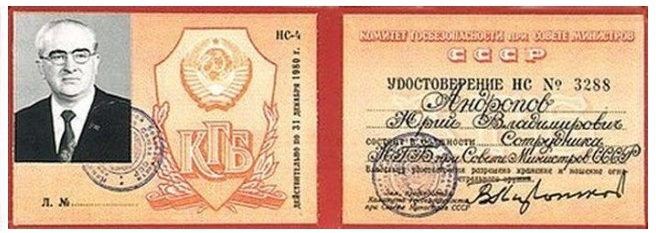Aare Kruuser is involved with the security business,Vladimir pool – weapons, Reil Sillar – fuel, Juri Zimin – fuel, Valeri Konovalov – security, Viktor Kozlov – various businesses, Mehis Pilv – real estate and others.
All seem to be successful at their new trade.
Rein Sillar, ex- KGB major general and the last head of the KGB in Estonia in 1999 works as the the counsel for Orenburgen's subsidiary Onako in Estonia. His position at the huge fuel concern was preceded by employment with Tiiu Silves' metal export business (a sector rife with corruption and blatant theft from the government). At Onako Sillar is involved with development of the company's logistics – storage and transport. It's said that he could live comfortably from his Moscow based general's pension. Sillar indicates he couldn't vegetate at home.
Asked why former KGB officers are sought after by employers Sillar replies: “They have higher education. They're disciplined. They're not narrow-minded. They're reliable.” Sillar says that an easier question to answer by the ex-KGB would be to list the establishments where they are not welcome as employees.
Sillar added that the “corporate spirit” amongst ex-KGB officers is high. Some 20,000 full time operatives left the KGB in the Soviet Union from September 1991 to May 1992. All are involved in either business and/or politics. “If I have any problems I'll contact a former colleague lake Vasja. I know that he'll never pull a fast one on me.” This logic is espoused by other ex-KGB.
Sillar does not suffer from any unnecessary guilt. “Enn Tarto (former prominent political prisoner who was incarcerated longer that anyone other Estonian dissident) invited me to testify at a parliamentary committee session and asked me about feeling guilt in front of the Estonian people. For me that theme is no longer relevant. For him it probably is.”
“I can't be bothered to spy any more. My interest in that work has been exhausted,” says Sillar when accused of continuing to work for Russian interests. Sillar points to possible German intelligence interests being dominant in Estonia. He explains that a former German military intelligence officer is serving as a representative of the OSCE (Organization for Security and Co-operation in Europe) in the Estonian government commission that decides who of the ex-Soviet military and ex-KGB will receive residency permits to continue living in Estonia. These ex-Soviets have just the right background for recruitment by German intelligence says Sillar.
Ervin Oras, the former head of the KGB section in Põlva, who became known as the ‘liquidator' in 1978 of the last Estonian anti-Soviet partisan (Metsavend), August Sabbe, feels right with the world. He has guaranteed himself a secure life in his old age by working with the Imbi Inc. Sillari says that theoretically the hundreds that retired from the Estonian KGB headquarters on Pagari Street in Tallinn could all be working for the Russians. But in reality things have not developed in that direction.
Ex-KGB major Henn runs an information publishing concern which has hired 30 employees. The computers at his firm are the latest in technology. Just a few years ago he didn't consider the enterprise to have a future in Estonia, but now he manages a successful business. Sillari comments that it was thought that only ex-KGB from higher ranks could make a go of it in independent business.
But Kaido (b. 1963, lower ranking KGB) is often seen driving around Tallinn in a Buick. He has just been for an interview with KAPO (Security Police) and was informed that since he did not voluntarily identify himself with KAPO as being formerly KGB, then his name will appear in the Parliamentary Record (similar to Hansard in Canada). (An Estonian law stipulates that the identity of all former Soviet covert services personnel who had not registered themselves with the Estonian government would be revealed in the Parliamentary Guide.) Kaido was pleased with the chat at KAPO where they conversed as colleague to colleague and Kaido was told that the law, regrettably, allowed KAPO no other choice than to reveal his identity.
Kaido shows some bitterness with the publishing of his name as being an ex-KGB. “Not all KGB were involved with repressing the population. Some of us did legitimate criminal investigations.” But he slides easily over a post-Soviet business venture: selling surplus Soviet fuel meant for their military to fishermen and justifying this with helping the fishing industry. No taxes, no government payments were involved. This for him was not a crime. It's said that many ex-KGB started their post-Soviet careers in the business and trade sectors (illegal metal export, selling of contraband fuel) with which they had previous dealings as investigators.
Some observers are convinced that the ex-KGB element in the 1999 Estonian economy is such that if it were to be eliminated there would be serious business chaos. An exaggeration perhaps, but a perception by some who have studied that situation.
(A future column will continue this theme by describing where ex-KGB have been since 1999.)
Laas Leivat




